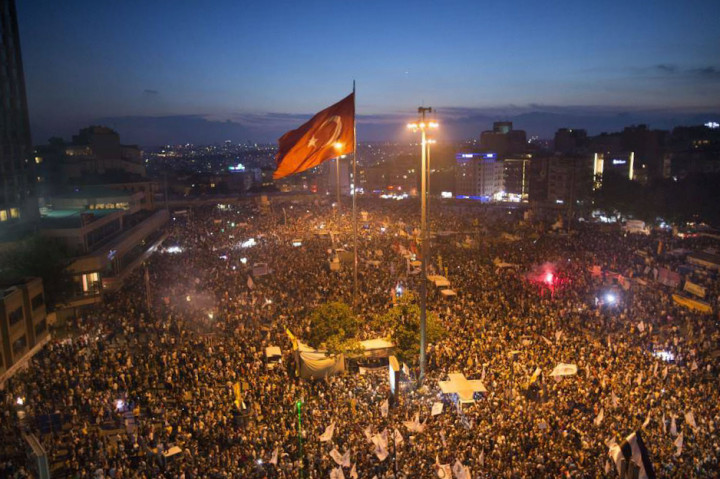It seems that the Syriza-effect has gone beyond Greece and extended to its Turkish neighbour.
Election results from the country show that no party gained a majority, much to the annoyance of the leading party, the AKP, that was aiming to achieve a super-majority in order to make constitutional changes, including handing more power to the President.
The new parliament of 550 seats has 258 for the AKP – the Justice and Development Party, which is generally a conservative party, pro-business, pro the USA, and pro joining the European Union. It has a tradition of Islamism and campaigned for giving more power to the President, a former leader of the Party – former because he had to officially resign from the party on assuming the presidency – and increasingly opposed for his authoritarianism.
132 seats have gone to the Republican People’s Party, a social-democratic party, politically left of the AKP, which campaigned on policies to increase the minimum wage and to extend health insurance.
The third power with 80 seats is the MHP, the Nationalist Movement Party, which is a far-right party and hostile to the Kurdish minority.
However, the outstanding winner of this election is the party that came fourth in terms of number of votes, although they also have 80 seats in parliament. The HDP, the Peoples’ Democratic Party is an anti-nationalist left-wing party, pro-Kurdish, environmentalist, pro-LGBT, anti-capitalist and anti-nuclear amalgamation formed in 2012.
It was a big risk for the HDP, because under the Turkish electoral system any party that receives less than 10% of the vote has their seats redistributed to parties who achieved more than 10%. The HDP achieved 13% and can take its place in parliament.
The HDP has clear influences from the social movement that spread around the world under names such as Indignados and 15M in Spain and the Occupy Movement in other places. In Greece and Spain these movements led to political support for Syriza and Podemos respectively. In Turkey social discontent erupted in 2013 over the destruction of Gezi Park in order to build a shopping centre. The violent repression of peaceful protest acted as a wakeup call to many Turks. For decades the Turkish government has condemned Kurds as violent terrorists, and here the government was doing the same thing to peaceful protesters. Many people have experienced a social awakening as a result and this was reflected in the polls.
The Party is committed to equal rights for men and women, shown by the fact that every important decision-making body must have a 50:50 balance. Any positions such as party leader, or elected Mayor, are shared by one man and one woman. The openness goes even further however, with a 10% quota being established for candidates who identify as LGBT and for the first time ever an openly gay man will take a seat in parliament.
Turkey now enters a period of instability and historically is not good in unstable situations, nevertheless the alternatives in the past have generally been authoritarian. It remains to be seen what will happen in Turkey now. Either a coalition will form, or the AKP will stumble on as a minority government.
What is sure is that the AKP’s plan to give more power to the President will have to be shelved and Recep Erdoğan has gone very quiet not having been seen or heard for nearly three days at the time of writing. Turkey wonders what he’s up to!










